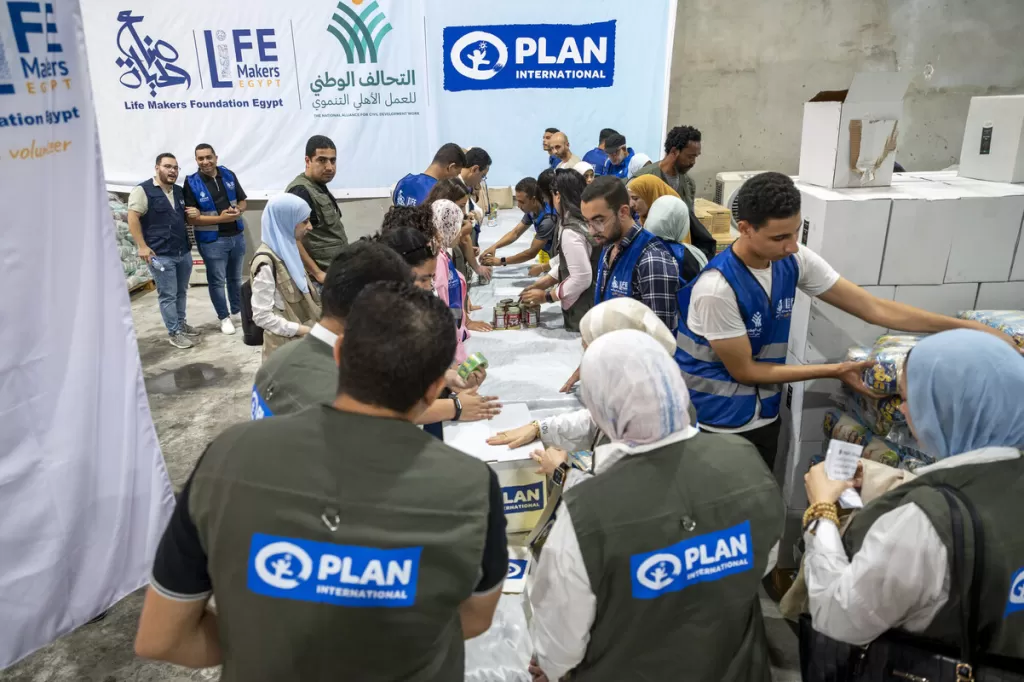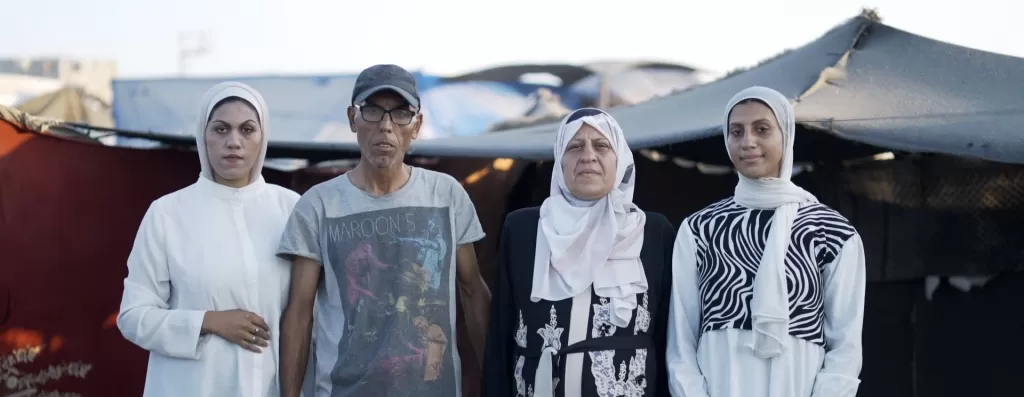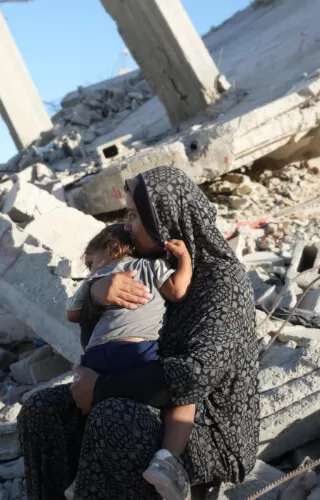
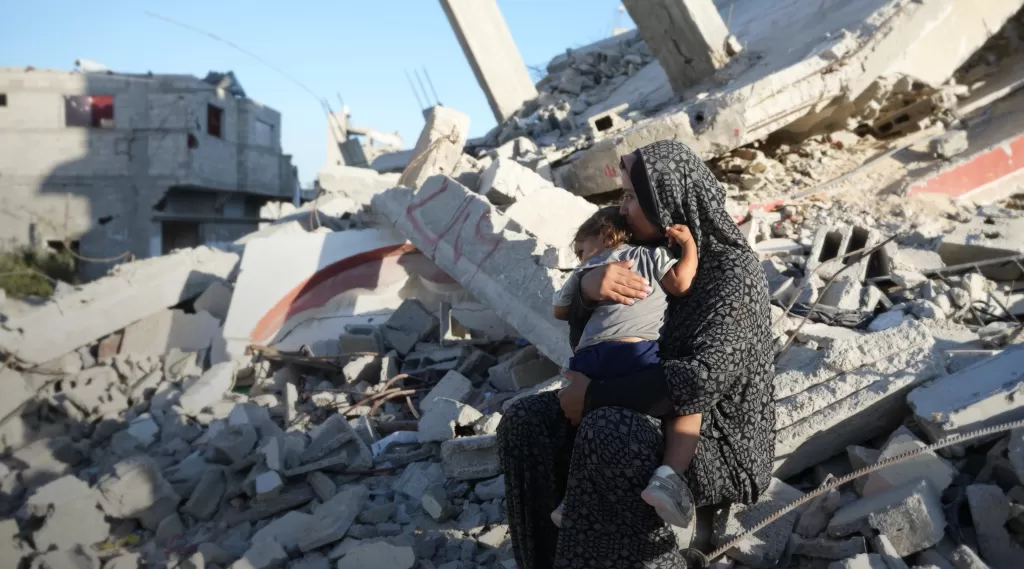
Middle East
Humanitarian
Appeal
Middle East
Humanitarian Appeal
Conflict in the Middle East has devastated lives. The ceasefire agreement in Gaza brings hope and relief. DEC charities are now scaling up their work but urgently need more funds. Your support can save lives. Donate now.
Aaliyah* holds her daughter on the remains of a damaged building in Gaza in October 2024. The mother of six built a temporary shelter opposite her demolished house and depends entirely on aid to feed her family. Photo: DEC/Arete/Abdallah Alsayed
The levels of need are catastrophic

2.1 million
people facing extreme food shortages with famine confirmed across Gaza City

1.9 million
people displaced in Gaza, and tens of thousands more in Lebanon
Gaza response: October '24 to April '25
Much of this work was made possible by the increase in aid delivered during the ceasefire agreement at the start of this year, but the situation deteriorated rapidly.
The full-scale blockade on supplies entering Gaza during this period has had a devastating impact on the work of DEC charities and their local partners, leaving them unable to deliver lifesaving food, water and medicine.
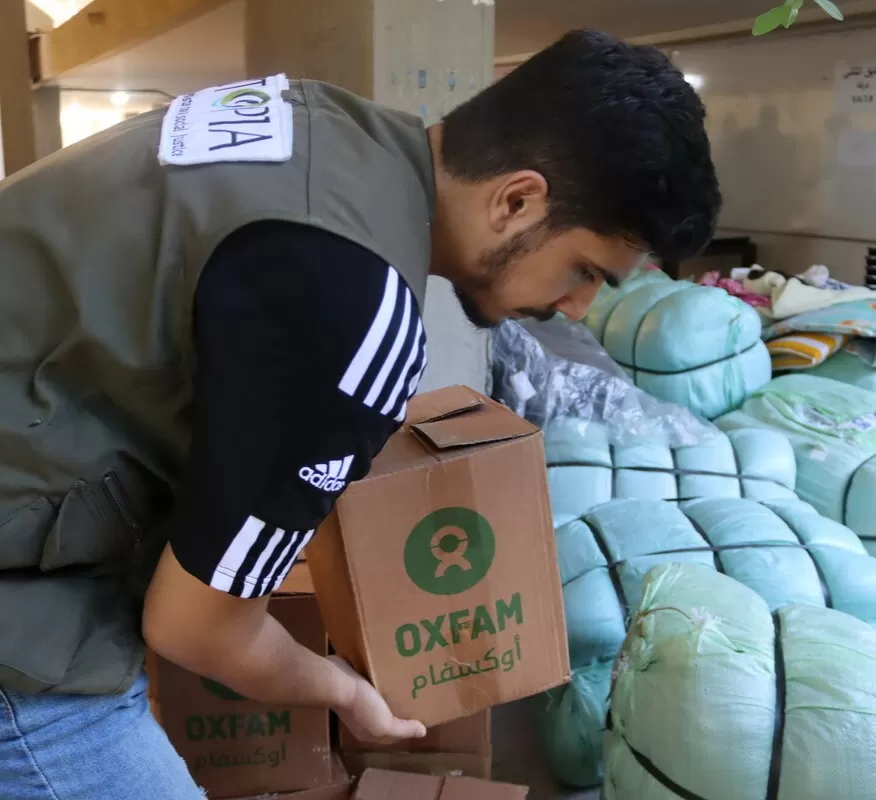
Mohammad, an aid worker from Oxfam’s local partner in north Lebanon distributes hygiene kits to displaced people at a collective shelter. Photo: Fatima Ghemrawi/Utopia for Social Justice/Oxfam
Where DEC charities are responding
Conflict in the Middle East has devastated lives across the region, and millions have fled their homes in search of safety.
DEC charities are responding in Gaza, Lebanon, the West Bank and Syria to meet urgent needs. The ceasefire agreement in Gaza means they are preparing to scale up their work again and reach more people with support. Read more about where and how our charities are responding.
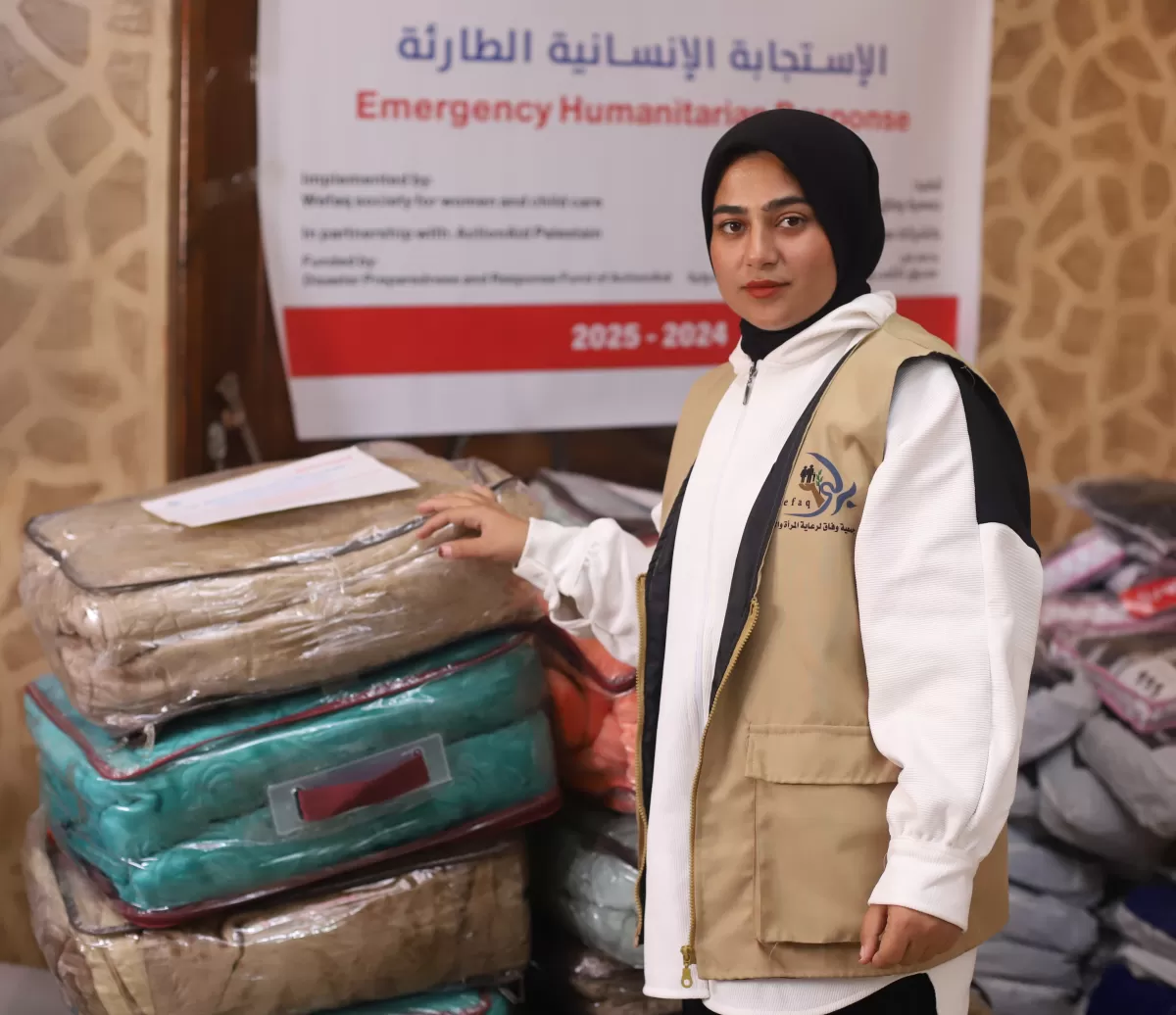
Salam, a volunteer with Wefaq organisation in Gaza and partner of DEC charity ActionAid, Feb 2025. Image: Wattan Media Network/ActionAid
How DEC charities are providing aid as the crisis evolves
Throughout the crisis DEC charities have been working hard to cope with limited deliveries of aid. The ceasefire agreement in Gaza means they are now preparing to scale up their work and reach more people with support.
The needs are huge, and DEC charities and their local partners are working tirelessly to deliver lifesaving food, water, medicine and essential supplies.
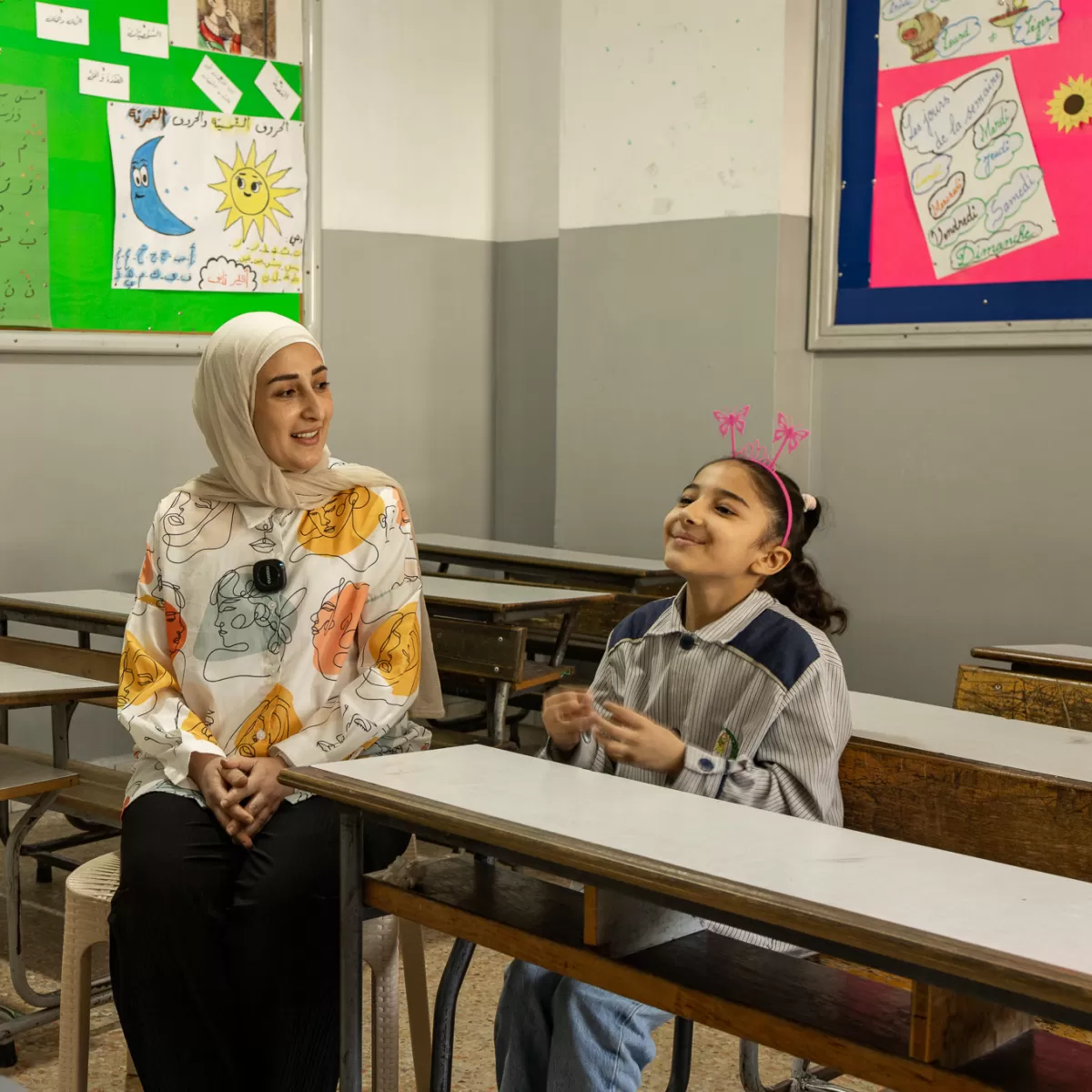
Maryam sits with her seven year old daughter Zahraa after taking part in psychological support activities, May 2025. Image: Carmen Yahchouchi / DEC / Fairpicture
Local expertise helps meet urgent needs in Lebanon
The ceasefire agreement in Lebanon at the end of last year meant some of the hundreds of thousands of people displaced by conflict could return to their communities and start to rebuild their lives.
Find out more about how DEC charities have been working with local partners in Lebanon, to provide families with essential support to meet their needs.
Appeal News
The latest news from the situation in the Middle East.
Jump to
The Scotsman: This is the beginning of a long, difficult road to recovery
12 October 2025
Huw Owen of DEC Scotland writes for Scottish publication The Scotsman, looking at the opportunities presented by the ceasefire agreement in Gaza.
He describes the ceasefire as a time for the DEC’s 15 members charities and their indefatigable local partners to "take stock, restock and revitalise their operations for a monumental task ahead".
The DEC's Middle East Humanitarian Appeal has raised £4.4m in Scotland.
ITV: UN says aid into Gaza to be stepped up from Sunday
10 October 2025
ITV have reported a major humanitarian relief effort is set to begin on Sunday after United Nations officials say the green light has been been given to begin delivering aid into Gaza.
UN Under-Secretary-General for Humanitarian Affairs and Emergency Relief Coordinator Tom Fletcher said:
“We must seize this moment with collective will, determination and generosity."
Find out more about what the ceasefire agreements means for DEC charities here.
DEC appeals to UK public for donations following Gaza ceasefire agreement
10 October 2025
The ceasefire agreement in Gaza presents a critical opportunity for DEC charities and their local partners to scale up their work again, after months of extraordinary challenges delivering aid.
Saleh Saeed, Chief Executive of the DEC, said:
“The ceasefire agreement in Gaza marks a fragile but vital moment of hope.
As DEC charities and their local partner organisations prepare to scale their work back up, donations are urgently needed to support the monumental task ahead. Sustained access for humanitarian aid is critical to end the famine and save lives."
DEC Middle East Humanitarian Appeal raises over £50 million
9 September 2025
The Middle East Humanitarian Appeal has now raised over £50 million thanks to the amazing generosity of the UK public.
The majority of appeal funds spent so far have supported programmes in Gaza, where the catastrophic humanitarian crisis continues to deteriorate.
Donations to the Middle East Humanitarian Appeal are helping to provide emergency medical care for the many sick and injured, clean water, cash assistance and more.
Despite severe challenges delivering aid, DEC charities and their dedicated local partners are doing everything they can to continue providing some support in these unimaginable conditions.
